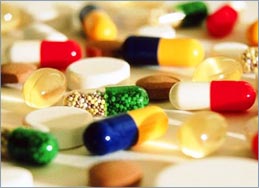
BY SAKSHI KUMAR:
Several resource-poor countries, especially those in Africa, depend heavily upon other countries to satisfy their need for medical drugs. This need is sustained either by foreign aid, or by buying cheap generics from the pharmacy of the developing world — in other words, India.
Pharmaceuticals are one of the main Indian exports to Africa, making up almost 11.1% of total exported items. Indeed, Indian pharmaceutical companies are the largest providers of generic medicine worldwide — the Indian government’s refusal to recognize certain big pharma patents allows firms to produce generic drugs at super low costs with which other countries cannot compete. These low-cost generic drugs are perfect for markets in developing countries, which require healthcare services that are as cost-competitive as possible in order to maximize the percentage of their populations that can afford these drugs.
At a first glance, Indian provision of cheap generic drugs to developing African countries appears to be a win-win situation. African countries in need receive extremely low-cost life saving drugs, while Indian pharmaceutical companies expand their profit margins from the drugs’ sale. As an example of this, in 2001, Cipla – India’s second largest pharmaceutical company – was able to supply AIDS drugs to sub-Saharan Africa at a rate that slashed the per-patient price from more than $10,000 a year to less than $400. Cipla’s intervention in the African drug market allowed the percentage of HIV positive patients being treated to increase from 2% in 2003 to 37% in 2009.
Thus, the symbiotic relationship between India and sub-Saharan Africa appears to work perfectly on a superficial level. The reality of the matter is, however, that there is no end to the persistence from global pharmaceutical companies wanting to extend the duration of market exclusivity on their brand-name drugs to prevent competition from generics. Private companies are pushing to patent every slight alteration of a drug that might instead be sold as a generic; a move that could potentially send their profit margins (and, consequently, drug prices) through the roof.

For example, Novartis, a Swiss pharmaceutical company with several laboratories based in India, attempted to file a patent for a slightly altered version of its cancer drug Gleevec. The Supreme Court case attracted widespread media attention not only due to the fact that Gleevec is one of the most effective treatments known for leukemia, but also because developing countries depend on Indian pharmaceuticals to provide generic versions of this drug. Thus, the Supreme Court’s decision could have potentially affected billions of people globally, causing several health activist groups (such as Medecins Sans Frontieres) to become extremely worried.
The above example brings to light another problem with Africa’s dependence on imported drugs – it puts the continent at the mercy of the whims and desires of the Indian government. When it comes to something as critical as HIV treatment, it is simply not worth the risk to depend entirely upon foreign governments to dictate its availability. To make a long story short, Africa needs its own generic drug manufacturing companies to compete with those of India; it needs to develop its own pharmaceutical pipeline by creating policy frameworks that encourage a fledgling drug industry.
Dependence upon cheap Indian generic drugs is not a long-term solution to Africa’s drug shortage problem. It is not feasible that an entire continent should put itself totally at the whims of foreign companies and governments – to reduce any risk associated with this dependence, it is absolutely imperative that Africa begins to produce its own pharmaceutical drugs.
Sakshi Kumar ’16 is in Davenport College. She focuses on public health and micro-finance in developing countries in South Asia and Sub-Saharan Africa. Contact her at sakshi.kumar@yale.edu.